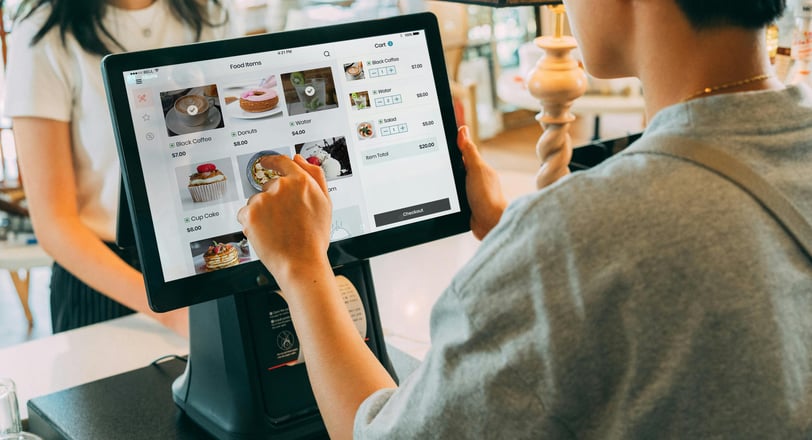Restaurant Innovativeness on Customer Loyalty
Explore various research topic ideas on restaurant innovativeness and its impact on customer loyalty. Discover how innovative practices can enhance customer experiences and drive loyalty in the competitive restaurant industry.
QUANTITATIVE RESEARCH
Realyn Manalo
5/16/20253 min read


In today’s competitive food service industry, restaurants no longer thrive on taste and service alone. The modern consumer increasingly seeks novelty—whether in the form of digital ordering, immersive dining experiences, or sustainable innovations. As customer expectations evolve, restaurant innovativeness has emerged as a critical driver of loyalty. Filipino diners, especially urban millennials and Gen Z, often reward brands that innovate through ambiance, menu offerings, and service design. Yet, understanding how these innovations influence loyalty—and whether these effects hold across formats like food trucks, fast casual, and fine dining—remains a largely unexplored frontier. This makes the study of restaurant innovativeness not just timely, but essential in shaping the future of customer engagement and retention in the Philippine hospitality sector.
Who Can Use These Topics
This research is ideal for students and professionals pursuing the following courses or strands:
College Programs:
BS in Hospitality Management
BS in Tourism Management
BS in Entrepreneurship
BS in Business Administration – Major in Marketing Management
BS in Hotel and Restaurant Management
BS in Innovation and Technology Management
Senior High School Strands:
TVL (Technical-Vocational-Livelihood) – Culinary, Hospitality, or Food Service Track
TVL-ICT
Accountancy, Business, and Management (ABM)
General Academic Strand (GAS)
Why This Topic Needs Research
There is growing interest in the relationship between restaurant innovation and customer loyalty, but significant gaps remain:
Lack of format-specific analysis: While previous studies confirmed that brand innovativeness affects loyalty via perceived quality, they did not analyze how this plays out across restaurant types or cultural contexts (Kim, Nicolau, & Tang, 2021).
Unexplained weak impact of menu innovation: Although technology and experience-based innovations proved effective, menu innovation showed inconsistent results—especially across different restaurant categories (Firkiana et al., 2025).
Limited exploration of digital and sensory innovations: Prior studies emphasized customer delight but did not isolate how digital ambiance, tech tools, or personalization contribute uniquely to loyalty (Qazi et al., 2024).
Underexplored influence of demographic variables: Research lacked insights into how age, income, or cultural factors alter the impact of innovativeness on loyalty and willingness to pay (Thomas, 2023).
Narrow focus on food trucks or Gen Z: Many findings came from niche markets like food trucks or youth segments, without broader validation across other generational and restaurant contexts (Wang, 2025; Wiastuti & Rashid, 2024).
Innovation beyond food products overlooked: Most work focused on product innovation and ignored how service design, sustainability, or environmental practices influence loyalty in quick service or full-service formats (Manhas, Sharma, & Quintela, 2024).
Feasibility & Challenges by Target Group
Get Your Free Thesis Title
Finding a well-structured quantitative research topic can be challenging, but I am here to assist you.
✔ Expertly Curated Topics – Not AI-generated, but carefully developed based on existing academic studies and research trends.
✔ Comprehensive Research Support – Includes an existed and updated research gaps, explanation of variables as well as SDG relevance.
✔ Personalized for Your Field – Get a thesis title tailored to your academic requirements and research interests.
Prefer video content? Subscribe to my YouTube Channel for expert insights on research topics, methodologies, and academic writing strategies.
References
Firkiana, Q., Kurniawati, K., & Masnita, Y. (2025). The Influence of Customer Perceived Restaurant Innovativeness (CPRI) of Meatball Restaurants on Brand Love and Brand Loyalty. Indonesian Interdisciplinary Journal of Sharia Economics (IIJSE), 8(1), 761-786.
Kim, E., Nicolau, J. L., & Tang, L. (2021). The impact of restaurant innovativeness on consumer loyalty: the mediating role of perceived quality. Journal of Hospitality & Tourism Research, 45(8), 1464-1488.
Manhas, P. S., Sharma, P., & Quintela, J. A. (2024). Product Innovation and Customer Experience: Catalysts for Enhancing Satisfaction in Quick Service Restaurants. Tourism and Hospitality, 5(3), 559-576.
Qazi, U., Shah, S. H. A., Hussain, J., Usman, M., & Khan, M. I. (2024). Beyond the Plate: Unpacking the Relationship Between Perceived Restaurant Innovativeness, Customer Delight and Customer Loyalty in Upscale Restaurants. Social Science Review Archives, 2(2), 2187-2199.
Thomas, G. (2023). Demystifying the relationship between restaurant innovativeness, customer engagement, and customer willingness to pay a higher price. Sustainability, 15(10), 7795.
Wang, W. (2025). The wait for authenticity: The role of consumer innovativeness in shaping food truck perceptions. International Journal of Hospitality Management, 127, 104137.
Wiastuti, R. D., & Rashid, B. (2024). Evaluating Restaurant Innovativeness-The Generation Z Perspective Across Dining Format. International Journal of Sustainable Development & Planning, 19(1).
